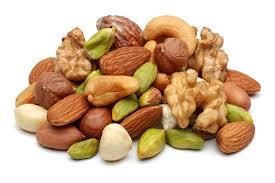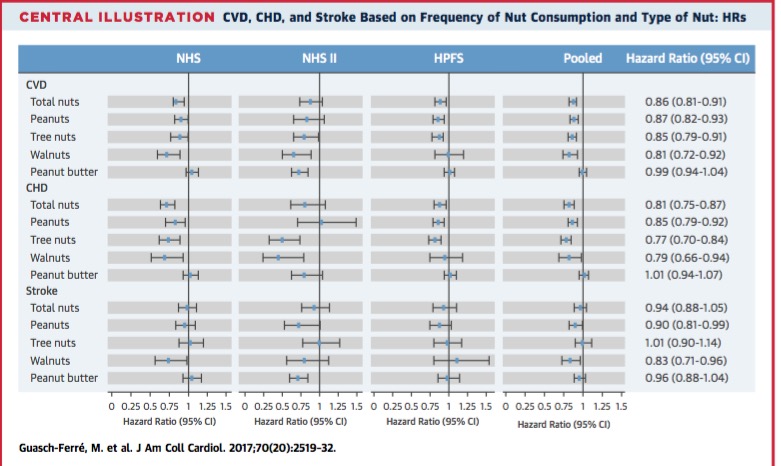
Using data from 3 large prospective epidemiological studies, the Nurses' Health Study, the Nurses' Health Study II, and the Health Professionals Follow-up Study, investigator looked at the possible associations between consumption of peanuts and tree nuts and cardiovascular disease (CVD) and coronary heart disease (CHD). Dr. Marta Guasch-Ferré from the Harvard School of Public Health and colleagues reported the results of their investigation in the Journal of the American College of Cardiology.
The Nurses' Health Studies (NHS) included over 134,000 women; the Health Professionals Follow-up Study involved over 41,000 men. Thus over 175,000 individuals were involved. All participants' dietary intakes were assessed at baseline and every four years with food frequency questionnaires. Initially, the participants were free of heart disease, cancer, and stroke.
The investigators found that overall, those who ate nuts more frequently tended to be older, were less likely to smoke, had lower BMIs, and ate more fruits and vegetables than individuals who reported rarely or never eating nuts. Further, comparison of those who ate nuts 5 or more times per week with those who never did so revealed significantly decreased risk for total CVD and CHD of 14 and 20 percent, respectively.
They examined the association of individual types of nuts, for peanuts, the risk of CVD was decreased by 13 percent, for tree nuts by 15 percent compared to those who never ate them. And eating walnuts once or more per week was associated with a 19 percent lower risk of CVD. These associations were all statistically significant. In addition, there were statistically significant associations between intake of peanuts, tree nuts, walnuts and total nut intake and lower risk of CHD. These associations are shown in the summary chart below.

The main difference between this study and previous ones, which we reviewed here, is the analysis of different types of nuts, more specific disease endpoints, and inclusion of data from the second NHS. Otherwise, the conclusions are similar and involve digging deeper into the same body of data. Because of the observational nature of the data, one cannot assign causation to the association of nut consumption and reduced risk of disease.
One must also note that people who ate more nuts were also less likely to smoke and seemed to have healthier diets. Thus, simply adding nuts to an unhealthy diet is very unlikely to provide the benefits seen in this study.



